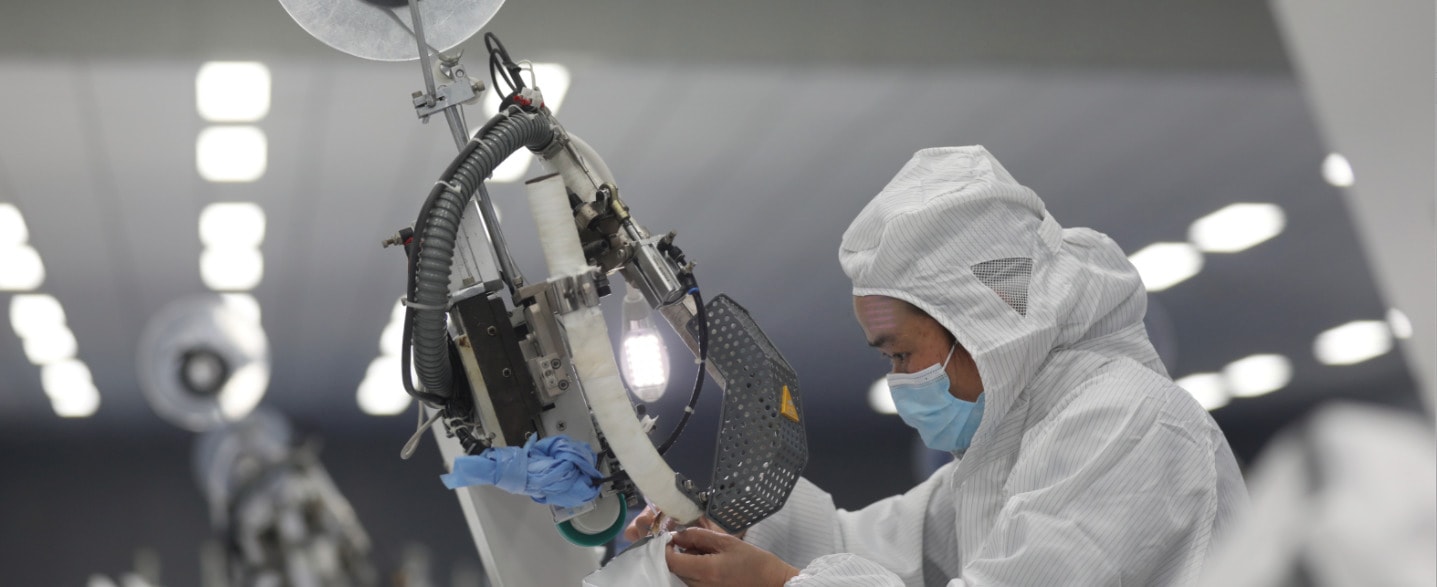

全球未来理事会
世界经济论坛的全球未来理事会是世界领先的跨学科学术网络,致力于促进未来思维创新。
相关内容 社区


Global Future Council on the Future of Artificial Intelligence

Global Future Council on the Future of Autonomous Mobility

Global Future Council on the Future of Care Economy

Global Future Council on the Future of Cities

Global Future Council on the Future of Clean Air

Global Future Council on the Future of Complex Risks

Global Future Council on the Future of Cybersecurity

Global Future Council on the Future of Data Equity

Global Future Council on the Future of Economics of Equitable Transition

Global Future Council on the Future of Energy Transition

Global Future Council on the Future of Food and Water Security

Global Future Council on the Future of Good Governance

Global Future Council on the Future of Growth

Global Future Council on the Future of Job Creation

Global Future Council on the Future of Metaverse

Global Future Council on the Future of Nature and Security

Global Future Council on the Future of Net Zero Living

Global Future Council on the Future of Philanthropy for Climate and Nature

Global Future Council on the Future of Quantum Economy

Global Future Council on the Future of Resilient Financial Systems

Global Future Council on the Future of Responsible Investing

Global Future Council on the Future of Responsible Resource Use

Global Future Council on the Future of Space

Global Future Council on the Future of Sustainable Tourism

Global Future Council on the Future of Synthetic Biology

Global Future Council on the Future of Tackling Antimicrobial Resistance

Global Future Council on the Future of Technology Policy

Global Future Council on the Future of Trade and Investment

Previous Global Future Council on Augmented Reality and Virtual Reality

Previous Global Future Council on Clean Electrification

Previous Global Future Council on Human Rights

Previous Global Future Council on Japan

Previous Global Future Council on Media, Entertainment and Sport

Previous Global Future Council on Mental Health

Previous Global Future Council on Net-Zero Transition

Previous Global Future Council on Scientific Collaboration

Previous Global Future Council on SDG Investment

Previous Global Future Council on Social Cohesion and Just Transition

Previous Global Future Council on the New Agenda for Economic Growth and Recovery

Previous Global Future Council on the New Agenda for Education and Skills

Previous Global Future Council on the New Agenda for Fiscal and Monetary Policy

Previous Global Future Council on the New Agenda for Fragility and Resilience

Previous Global Future Council on the New Agenda for Work, Wages and Job Creation

Previous Global Future Council on Urban Mobility Transitions
相关内容 报告

Trade and Values: Navigating the Intersection of Policy and Principles
Trade policies have evolved beyond economic efficiency, increasingly reflecting non-trade objectives (NTOs) like climate action, human rights and sustainability. This trend sees countries...

Strengthening the Gender Dimension in the Trade Policy Review Mechanism
Trade and domestic policy interventions can help address challenges women and their businesses face, while gender-disaggregated data assists in identifying issues and evaluating the impac...

Future Focus 2025: Pathways for Progress from the Network of Global Future Councils 2020–2022
Future Focus 2025: Pathways for Progress from the Network of Global Future Councils 2020-2022 offers a positive and inspiring agenda around which a sustainable and inclusive recovery can ...

A Blueprint for Equity and Inclusion in Artificial Intelligence
Artificial intelligence (AI) has great potential to benefit society, but the technology’s full potential can only be realized if it is representative of the diversity of populations it im...

Immersive Media Technologies: The Acceleration of Augmented and Virtual Reality in the Wake of COVID-19
The COVID-19 pandemic disrupted whole economies. Immersive media businesses, which focus on technologies that create or imitate the physical world through digital simulation, have been no...

Engaging Affected Stakeholders: Guidance for Board Members on Human Rights
Companies face increasing scrutiny of their social and environmental performance from consumers, communities, workers, governments and investors. Business leaders are being urged to consi...

Conflict, Sanctions and the Future of World Trade
The Russian invasion of Ukraine has been met with unprecedented trade and other economic sanctions. Some members of the World Trade Organization (WTO) have revoked Russia’s most-favoured-...

Scaling Investments in Nature: The Next Critical Frontier for Private Sector Leadership
More than half of the world’s GDP – US$44 trillion – is at immediate risk due to nature loss. Fortunately, investing in nature allows us to not only mitigate future environmental catastro...

2022年全球风险报告
随着2022年的到来,新冠疫情及其产生的经济和社会影响将继续对世界构成严重威胁。由于接种疫苗的机会不平等,全球经济正在以不均衡的速度走向复苏,可能进一步加剧社会裂痕和地缘政治紧张局势。截至本文撰写之时,占全球人口20%的最贫穷的52个国家中,只有6%的人口接种了疫苗。到2024年,发展中经济体(不包括中国)的GDP增速将比大流行前的预期增速下降5.5%,而发达经济体将比预...

The Rise and Role of the Chief Integrity Officer: Leadership Imperatives in an ESG-Driven World
The growing shift in corporate governance requires organizations to break down silos and create more deliberate alignment and collaboration across critical functions, including ESG/sustai...

Sustainable Road Transport and Pricing
This White Paper, from the Global Future Council on Urban Mobility Transitions, evaluates road pricing mechanisms and calls for an acceleration towards equitable, clean and financially re...

Net-Zero to Net-Negative: A Guide for Leaders on Carbon Removal
To achieve the goal of a safe climate, we will need to both dramatically reduce emissions to achieve absolute zero greenhouse gases and simultaneously start reducing the stock of pollutan...

Revisiting and Realizing the Promises of Synthetic Biology
Synthetic biology is a frontier field that employs science and engineering approaches to design biologically based parts, novel devices and systems as well as redesign existing, natural, ...

Getting to Net Zero: Increasing Clean Electrification by Empowering Demand
Published under the auspices of the World Economic Forum Global Future Council on Clean Electrification, this Insight Report invites policy-makers, regulators and investors to place great...

全球未来理事会响应性金融体系议题组“三管齐下”加速金融数字化复苏
金融体系在支持疫情防控和促进经济复苏中发挥着关键作用,而数字化将主导后疫情时代的经济复苏。世界经济论坛全球未来理事会成员积极探索有效方法,助力金融系统利益相关者加快部署数字解决方案。全球未来理事会成员认为,向数字解决方案的转变为整个金融系统的利益相关者提供了大量机遇。本文主要强调以下三点:

Space for Net Zero
Climate change is one of the greatest global challenges. The accumulation of greenhouse gases in the atmosphere, particularly from anthropogenic emissions, is changing Earth’s climate at ...

Pathways to Digital Justice
The World Economic Forum’s Global Future Council on Data Policy liaised with the Global Future Council on Media, Entertainment and Sport and the Global Future Council on AI for Humanity t...

A Holistic Guide to Approaching AI Fairness Education in Organizations
As companies around the world increasingly use artificial intelligence (AI) in their decision-making processes, there is an ever greater risk of creating or reinforcing unfair bias. This ...

Building Back Broader: Policy Pathways for an Economic Transformation
The highly asymmetric impact of the pandemic has reinforced historical inequalities within and between countries and is now giving rise to a highly divergent recovery. Technological chang...

Global Governance Toolkit for Digital Mental Health
In collaboration with Deloitte

Net-Zero Challenge: The supply chain opportunity
This report, co-authored with Boston Consulting Group, is the second in our series for the Net-Zero Challenge. It showcases the opportunity that all companies have for huge climate impact...

全球风险报告2021
In partnership with Marsh McLennan, SK Group and Zurich Insurance Group

Net Zero Carbon Cities: An Integrated Approach
Cities cover 3% of the earth’s land surface yet they create more than 70% of all carbon emissions. To keep global temperature increases to 1.5°C or below, cities have to achieve net-zero....

Top 10 Emerging Technologies 2020

The Future of Jobs Report 2020

Dashboard for a New Economy Towards a New Compass for the Post-COVID Recovery
The simultaneous disruption caused by the COVID-19 crisis in nearly every country around the world has forced societies into a moment of pause and reflection on what is truly of value. Re...

Six ways space technologies benefit life on Earth

The Post-COVID-19 Financial System
The COVID-19 pandemic has triggered a rapid transformation of the global financial system: Businesses, small and large, needed almost-instant liquidity, individuals embraced digital and c...

Digital Transformation: Powering the Great Reset
COVID-19 is a watershed moment for the digital transformation of business. The rules for success have changed and are ever more reliant on harnessing the power of digital models to create...

新自然经济系列报告II:自然与商业之未来
《自然与商业之未来》是世界经济论坛三份新自然经济系列报告中的第二份报告,它为营造向有益于自然经济转型的领导力提供了独特视角。

New Nature Economy Report Series
A series of reports showing the relevance of nature loss to boardroom discussions on risks and opportunities. These insights provide pathways for business to be part of the transition to ...

Global Future Council on Quantum Computing: Frequently Asked Questions
A Community Paper by the Global Future Council on Quantum Computing.

Global Future Council on New Network Technologies - 5G: Society’s Essential Innovation Technology
A Community Paper by Global Future Council on New Network Technologies

Diversity, Equity and Inclusion 4.0: A toolkit for leaders to accelerate social progress in the future of work
The Diversity, Equity and Inclusion Toolkit explores the practical opportunities and risks that rapidly emerging technologies represent for diversity, equity and inclusion efforts. The to...

Winning the Race for Survival: How New Manufacturing Technologies are Driving Business-Model Innovation

How Can Trade Rules Support Environmental Action?

Guidelines for City Mobility: Steering towards collaboration

塑造多元概念世界

Global Social Mobility Index 2020: why economies benefit from fixing inequality

Nature Risk Rising: Why the Crisis Engulfing Nature Matters for Business and the Economy
Look out: Nature Risks on the Rise

Unlocking Technology for the Global Goals

Schools of the Future: Defining New Models of Education for the Fourth Industrial Revolution
阅读更多
全部相关内容 

Cómo crear un futuro sostenible en el espacio a través de su uso responsable
El futuro del espacio no se puede dar por sentado. A medida que el espacio se vuelve más congestionado y crítico para la vida moderna, el tema de su sostenibilidad deja de ser opcional y ...

How to shape a sustainable future in space through responsible action
The future of space is not guaranteed. As space becomes more congested and critical to modern life, sustainability is no longer optional – it’s an imperative. Every satellite launch, orbi...

How the Global Future Councils use 'knowledge collisions' to address today’s challenges
Our world is becoming increasingly fragile. It is being shaped by complex challenges ranging from growing geopolitical volatility to trade protectionism, societal polarization and urgent ...